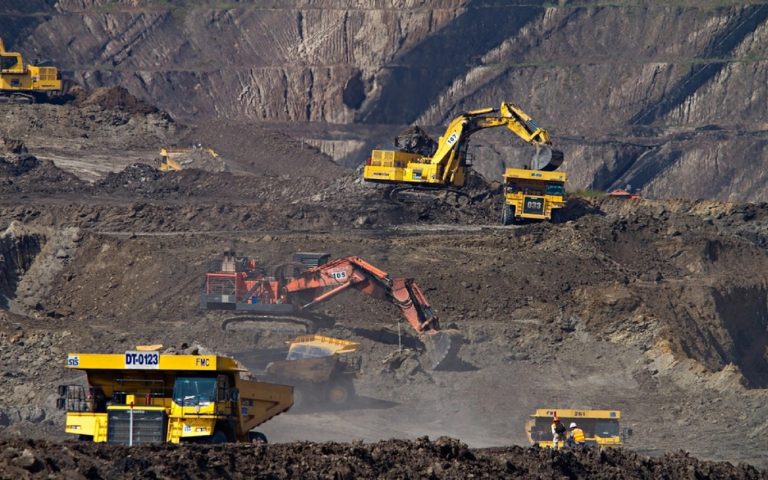Nigeria is an endowed country with so many natural resources. There are numerous natural resources to which Nigeria is endowed. They include but are not limited to the following: Coal, Bitumen, Limestone, Iron Ore, Barytes, Gold, etc. Almost every state in the Federation has at least one or two mineral resource deposits.
However, the mining sector of the country does not appear to be fully capitalizing on the opportunities within the industry, despite the implementation of legal and regulatory frameworks by successive administrations. These frameworks, both past and present, have seemingly failed to address the substantial challenges confronting the sector.
The Nigerian mining sector has the potential to significantly contribute to the overall GDP of the Nigerian economy. This can only be achieved if the government implements relevant policies and enforces the laws and regulations governing the sector. The mining industry, which historically played a noteworthy role in bolstering the Nigerian economy by contributing approximately 4 to 5 per cent of the GDP during the 1960s and 1970s, has experienced a notable decline. In recent years, its contribution has dwindled to a mere 0.17 per cent of the GDP.
The above is a result of the sole concentration of the government on the Oil Industry, thereby neglecting other industries of the country. The mining industry has great potential to contribute to the development of the Nigerian economy.
For Nigeria to diversify its economy, the country needs to explore other sectors such as the mining industry. This sector has historically been a significant contributor to the country’s economic growth. There is no more opportune time than now for Nigeria to focus on diversifying its economy.
LEGAL FRAMEWORKS FOR THE NIGERIAN MINING SECTOR
It is now imperative to delve briefly into the laws regulating the mining industry in Nigeria. However, it must be noted that apart from the main law and other subsidiary regulations made under the Act regulating the sector, there are other equally important laws that are crucial due to their unique nature and impact on doing business in Nigeria.
1. THE 1999 CONSTITUTION OF THE FEDERAL REPUBLIC OF NIGERIA (AS AMENDED)
The 1999 Constitution is the chief law of all legislation in Nigeria. All other laws of the country, whether an Act of the National Assembly or a law of the State House of Assembly derive their validity from the provisions of the Constitution. Any law that is inconsistent with the provision of the Constitution is void to the extent of its inconsistency. The provision of the Constitution prevails over all other laws in Nigeria.
About the mining sector in Nigeria, mines and minerals are listed in item 39 in the exclusive legislative list in the second schedule of the Constitution. Therefore, it is the Federal
Government through the National Assembly that can legislate on the mining industry in Nigeria.
2. THE MINERALS AND MINING ACT, 2007
The Minerals and Mining Act, 2007 is the primary legislation on the Mining sector in Nigeria. The Act regulates all aspects of the exploration and exploitation of mineral resources in Nigeria. Some have argued that the Act reflects the provisions of the Constitution by further providing that mineral resources are vested in the Federation on behalf of the people of Nigeria.
The Mineral and Mining Act also provides that all lands in which the minerals have been found in commercial quantities shall be acquired by the Federal Government in accordance with the Land Use Act. Hence, State Governments play a significant role in Nigeria’s mining sector, as the land with solid minerals belongs to the State Governors.
See section 1(1) and 3 of the 1999 Constitution of the Federal Republic of Nigeria (as amended); see also the following cases where Supremacy of the Constitution of the court has been upheld: Saraki v. FRN (2016) LPELR40013(SC);Abacha v. Fawehinmi (2000) 6 NWLR (Part 660) 228: PDP v. C.P.C (2011) 17 NWLR (Pt. 1277) 485.” However, the writer has come across situations in the Newspaper where state governments are seeing setting up committees over minerals found in their state. Whether this is right or not is what this writer cannot say. For example “Ogun Plans stiff sanctions for illegal miners” accessed at https://punchng.com/ogun-plans-stiff-sanctions-for-illegal-miners
The Mining Act states that ownership of mineral resources transfers from the Federal Government to the individual who holds the mineral title. The Act provides various mineral
titles that allow individuals to search for minerals or carry out mineral exploitation in Nigeria as follows;
- a) Reconnaissance Permit: This is a permit granted by the Mining Cadastral Office for the main purpose of searching for mineral resources. It has been described as a non10 transferable, annual non-exclusive Permit granted for reconnaissance only. It is for a 11 term of one year only and renewable annually. It allows holders the right to access, enter or fly over any land, and obtain, and remove surface samples in search of 12 mineral sources. It can be swiftly concluded that a holder of a Reconnaissance Permit cannot do any other thing other than for the purpose for which the permit is granted.
- b) Exploration License: It is an exclusive license granted by the Mining Cadastral Office for the exploration of all minerals for the duration of three (3) years, renewable for further periods of two (2) years each. It is granted over a land area not exceeding 200 square kilometers. It must however be noted that an Exploration License cannot be granted over a land which is subject to an existing exploration license, mining lease, small-scale mining lease or quarry lease. This Permit confers on its holders the right to excavate and conduct bulk sampling and testing of mineral resources. Its holder can also export samples and sell resources within stated limits by the Act or the Mining Regulations made under the Act.
- c) Small-Scale Mining Lease: It is an exclusive lease to carry out small-scale mining which covers an area greater than five acres but not exceeding 3 square kilometres. It is normally granted to our local artisanal and small-scale miners. It must, however, be noted that Small Scale Mining Lease is granted for a period of five (5) years and renewable for another five (5) years only and no more.
- d) Mining Lease: A Mining Lease is granted for a period of twenty-five (25) years and renewable every twenty-four (24) years. It is an exclusive permit granted in respect of an area of land not exceeding fifty (50) square kilometres. The land over which a Mining Lease is granted must not be within an Exploration License Area or a SmallScale Mining Area except where granted to the holder of the Exploration License or Small-Scale Mining Lea12qazse covering the given area.
- e) Quarrying Lease: It is a 5-year lease or sometimes less granted in respect of any area of land not exceeding five (5) hectares. It applies to all naturally occurring quarriable minerals such as marble, limestone, sand, stone, late rite, mica, pipe clay, slate, asbestos, china clay, fuller’s earth, gypsum, and gravel, which may also be lawfully extracted under Mining Leases. It prohibits extracting any quarriable mineral from a quarry including sand dredging in the navigable waterways or else for industrial use without the grant of a lease or permit by the Minister.
It must be noted that any mining activities carried out without mineral title validly obtained under the Act is a grave offence which attracts stiff sanctions. It is a criminal offence to carry out mining activities in Nigeria without a license obtained by the provision of the Act.
3. THE LAND USE ACT
The Mining Regulations are made pursuant to the Nigerian Minerals and Mining Act. The Regulations contain in detail, the provisions for the administration of mineral titles by the Mining Cadastre Office, including the procedure, duration and documentation required for the application of a small-scale mining lease and for the application for a permit to export minerals for commercial purposes. Both the Act and the regulations made under it are duly administered by the Ministry of Mines and Steel and the Mining Cadastre office. Other Legislation that regulate mining activities in Nigeria are as follows:
- a) Environmental Impact Assessment Act
- b) Foreign Exchange (Monitoring and Miscellaneous Provisions) Act
- c) Nigerian Investment Promotion Act
- d) Nigerian (Export Incentives and Miscellaneous Provisions) Act.
- e) Pension Reform Act.
However, it has been argued that the above legislations are secondary legislations that apply to the Mining sector in Nigeria.
CONCLUSION
In conclusion, this writer posits that the Nigerian Mining Sector presents great opportunities for the country to diversify its economy. This can only be achieved through the implementation and enforcement of the Nigerian Minerals and Mining Act, regulations enacted in accordance with the Act, and the adoption of various mining policies by relevant stakeholders in the sector.
content/uploads/2020/10/UNDERSTANDING-THE-LEGAL-AND-REGULATORY-CONSIDERATIONS-FOR-MINING-SOLID-MINERALS-IN-NIGERIA.pdf



